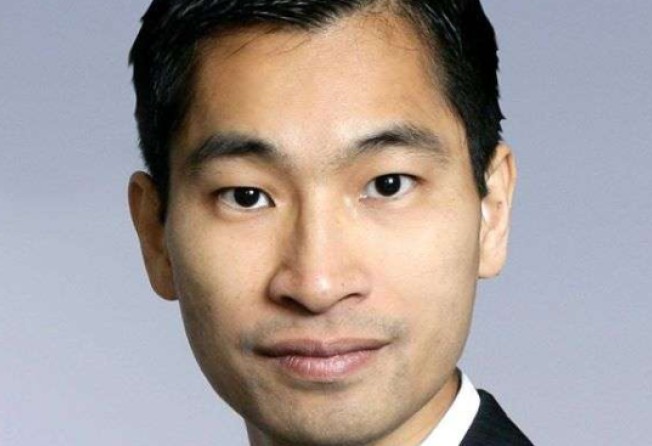Interest rates trigger: Hong Kong property prices will drop once rates rise, analyst predicts
Aggressive expansion in Hong Kong offers a strong reason for mainland developers to diversify, given the expectations for further yuan weakness

Eddie Lam Yat-ming is a stock and property market analyst and commentator. He discusses the outlook for the property market and the pros and cons of high land prices paid by mainland property developers.
What’s your take on the property market outlook for 2017 and beyond this year?
The Hong Kong property market is still in a bullish phase, I would say it is now in the third stage – during which new buyers pour into the market and buy because they fear that prices will only go up. In my opinion, the third stage of a bullish market does not last long, and I expect it to have run its course by the end of 2017. There is a chance that home prices will peak this year, at the time Hong Kong banks hike prime rates, and afterwards. How much as a percentage will property prices fall next year? I dare not guess now.
Land prices have been bid up aggressively by mainland developers recently. Does it mean that property prices will go up in the future?
Not necessarily. The price of a product is determined by market forces, which boils down to demand and supply. The cost of production, or the development cost of a project, does not necessarily regulate future prices. In other words, how much is paid for a piece of land today has no causal relationship with the price of homes to be completed two or three years later. If the market suggests that they are overpriced, either the developer will have to cut prices, or keep them in inventory, so supply falls. There is no guarantee that a development project will be profitable.
Why are mainland developers so keen to buy land in Hong Kong?
In a recent land deal, a joint venture formed by Logan Property Holdings and KWG Property, two mainland-based developers listed in Hong Kong, bought a waterfront site in Ap Lei Chau for HK$16.9 billion. The market caps of these companies are only HK$18.4 billion and HK$15.7 billion, respectively. Mainland developers appear to be bold and aggressive, somehow defiant too, in bidding for Hong Kong land. Profitability may not be their primary concerns. Perhaps they want to expand their market presence or coverage in Hong Kong property. Maybe they want to beef up their balance sheet. Aggressive expansion may have contributed to their success in domestic markets. Whether the same formula works in Hong Kong has yet to be tested. Given that expectations for further yuan weakness have not changed, buying Hong Kong assets, literally denominated in the US dollar because of dollar peg, is a hedge against currency risks. Diversifying away from the mainland property market is also a strong reason. Perhaps there are more reasons beyond our understanding.
What are the implications of a strong presence of mainland developers for the local property market?
The cost of borrowing for medium-sized mainland developers with high gearing ratios is much higher than for leading, established Hong Kong developers that have high credit ratings and strong portfolios. I believe the local property market will be more competitive if mainland developers take a greater share of the market. With more new players, new home prices tend to be more responsive to changes in demand. While these mainland homebuilders might have a good reputation back home, their brand and building quality are unknown to most Hong Kong homebuyers. To compete with local players, and let’s assume that their projects are in similar locations, new entrants either must build better homes, or sell them cheaper. Given that their costs of funds used to finance the land and development costs are much higher, when interest rates go up and the market reverses course, I
believe mainland players will be more willing to cut prices to boost sales, as they will be under
more pressure to generate cash flow to pay off debt plus interest.